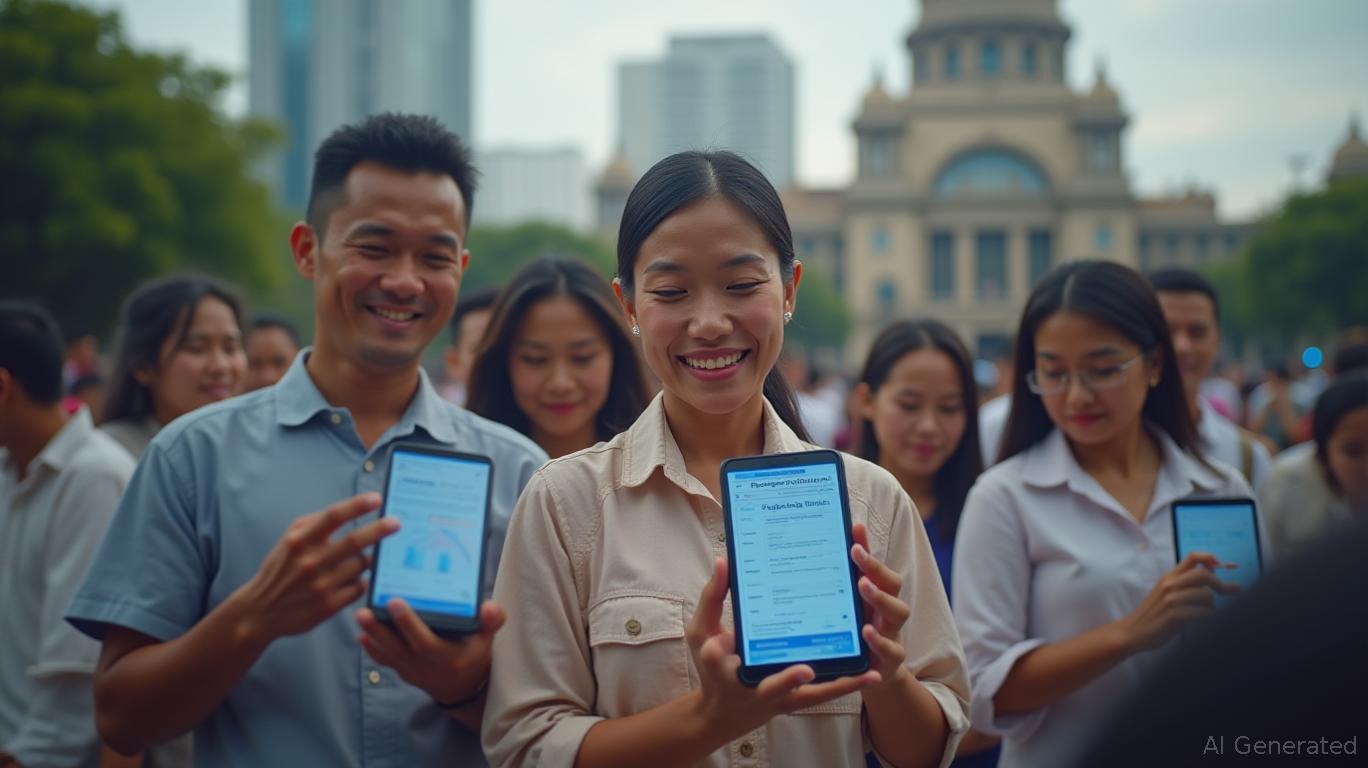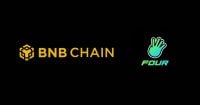To Address $17B Flood-Project Corruption, the Philippines Enables Public Oversight through Blockchain Transparency
- Philippines launches blockchain platform Integrity Chain to combat $17B corruption in flood-control projects, enabling public oversight of DPWH contracts and budgets. - System uses Polygon blockchain and 40+ NGO validators to create tamper-proof records, with real-time transparency preventing graft through decentralized verification. - Initiative follows 2025 protests over defective infrastructure and follows global trends, but uniquely empowers citizens to jointly verify public spending with institution

Amid widespread demonstrations over alleged corruption in flood-control initiatives valued at billions of pesos, the Philippines has introduced Integrity Chain—a blockchain-powered transparency tool for the Department of Public Works and Highways (DPWH). Created by BayaniChain Ventures, this platform logs public works agreements, budget allocations, and project progress on an immutable ledger, granting the public direct insight into government expenditures Blockchain Oversight In Philippines Public Works Projects [ 1 ]. The project is designed to tackle public frustration over an estimated $33 billion lost to overpriced contracts and substandard construction over the past 15 years; recent Senate investigations suggest losses in flood-control projects could surpass ₱1 trillion ($17 billion) Philippines Launches Blockchain System to Fight Corruption in … [ 2 ].
This system draws information straight from DPWH databases, transforming contracts and project phases into secure digital records. Prismo, BayaniChain’s orchestration layer, oversees data encryption and verification, while the Polygon proof-of-stake blockchain provides cryptographic protection and consensus. Independent validators—including universities, civic groups, and media outlets—authenticate the records, with hardware-protected keys rotated regularly to guard against tampering. More than 40 NGOs have already joined as validators, establishing a broad foundation for public oversight Philippines launches blockchain public records after mass … [ 3 ].
Vince Dizon, Secretary of Public Works, underscored the pressing need for reform, pointing out that corruption in flood-control projects has eroded confidence in infrastructure spending. Demonstrations on September 21, 2025—marking the 53rd anniversary of Ferdinand Marcos Sr.’s declaration of martial law—attracted around 130,000 people calling for accountability. Detractors claimed that faulty contracts and unfinished projects left communities exposed to flooding, a persistent problem in the Philippines, which endures roughly 20 typhoons each year Philippines Launches Blockchain System to Fight Corruption in … [ 2 ].
Paul Soliman, co-founder of BayaniChain, stated that the platform converts government documents into “permanent, auditable, and transparently validated” digital public assets. If expanded beyond the DPWH, Integrity Chain could help secure the nation’s $98 billion annual budget and support broader digital governance reforms. The platform builds upon previous initiatives, such as a blockchain-based verification network for financial records at the Department of Budget and Management, and comes ahead of proposed legislation by Senator Bam Aquino to record the entire national budget on a blockchain ledger Blockchain Oversight In Philippines Public Works Projects [ 1 ].
This effort mirrors a worldwide movement toward blockchain-based governance, with countries like Kyrgyzstan aiming to migrate all government services to blockchain by 2028. The Philippines’ model is distinctive for its civic-driven validation process, allowing citizens and organizations to collectively verify public expenditures. Gelo Wong, BayaniChain’s chief growth officer, explained that the “one-organization-one-vote” approach prevents any single group from dominating, and real-time openness curbs opportunities for corruption Philippines launches blockchain public records after mass … [ 3 ].
Although government use of blockchain is still in its early stages, the Philippines’ implementation is among the first major attempts to use the technology to combat corruption in public infrastructure. Observers see it as a trial for whether cryptographically secured records and community validation can succeed where conventional oversight has not. Its outcome could set a precedent for other countries struggling with opaque government spending, especially in developing regions where corruption has long undermined faith in public institutions Philippines Deploys Blockchain System to Combat Corruption [ 4 ].
Disclaimer: The content of this article solely reflects the author's opinion and does not represent the platform in any capacity. This article is not intended to serve as a reference for making investment decisions.
You may also like
Seamless Protocol to introduce leveraged tokens on Ethereum mainnet this week

BNB Chain partners with Four Meme for a $45M reload airdrop

Solana DEXs must focus on building resilient markets
BNB Chain and Four.Meme jointly launch $45 million BNB airdrop event